Jennifer J. Raab
President, Hunter College of The City University of New York
 Jennifer J. Raab marked her 20th anniversary as President of Hunter College, the largest college in the City University of New York system, with more than 24,000 students, five schools, and an annual operating budget of more than $250 million. President Raab has led the successful transformation of Hunter College from an open-admissions institution to a selective, highly ranked college; under her leadership both graduation and retention rates have increased markedly.
Jennifer J. Raab marked her 20th anniversary as President of Hunter College, the largest college in the City University of New York system, with more than 24,000 students, five schools, and an annual operating budget of more than $250 million. President Raab has led the successful transformation of Hunter College from an open-admissions institution to a selective, highly ranked college; under her leadership both graduation and retention rates have increased markedly.
Since she has assumed the presidency, Hunter has significantly increased its government grants and awards and strengthened its fiscal management. President Raab has been responsible for securing $400 million in private support for the college. She has launched a $25 million library renovation; a science research and nursing/health professions facility in partnership with Memorial Sloan Kettering Cancer Center; a floor in the new Belfer Research Building at Weill Cornell Medical College; a $131 million School of Social Work in East Harlem; a new facility in Tribeca for Hunter’s renowned art graduate program and gallery; a townhouse on E 67th St to house Hunter’s theater department and the $25 million restoration of the historic 1908 Roosevelt House.
President Raab was earlier a litigator Cravath, Swaine & Moore and Paul, Weiss, after which she was appointed Chairman of the New York City Landmarks Preservation Commission, a post she held from 1994 to 2001.
President Raab sat on the Board of Directors of Compuware Corporation, and is currently a member of the Council on Foreign Relations, serves on the Steering Committee of the Association for a Better New York, Advisory Committee for WOMEN.NYC and sits on the boards of directors of The After School Corporation, United Way New York, and the One To World Foundation, and was a member of the 2004-05 New York City Charter Revision Commission.
A graduate of Hunter College High School (whose campus she now oversees), President Raab received a BA with distinction in all subjects from Cornell University in 1977, an MPA from Princeton in 1979, and a JD cum laude from Harvard Law School in 1985. In 2016, President Raab’s achievements were recognized by her election to the American Academy of Arts and Sciences.

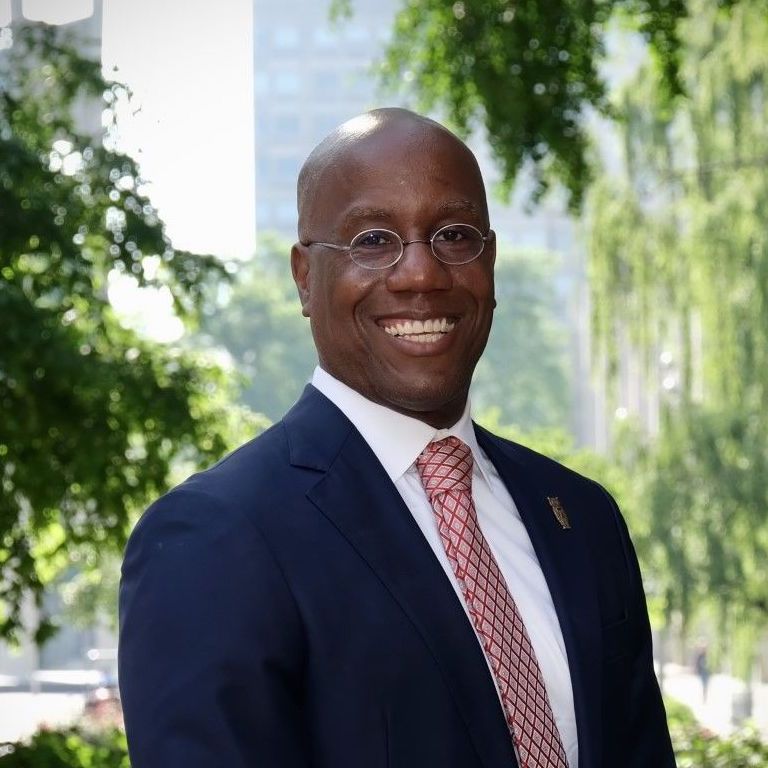 Dr. Jason Wingard is a leading academic and executive specializing in the areas of organizational strategy, leadership development, and the future of work. He currently serves as President of Temple University and holds a dual appointment as Professor of Policy, Organization, and Leadership; and Professor of Human Resource Management. Temple is a public research university, consisting of 17 schools across eight campuses and a regional health system. The university enrolls approximately 37,000 undergraduate, graduate, and professional students and is among the nation’s largest providers of professional education in the combined fields of dentistry, engineering, law, medicine, podiatry, and pharmacy. Temple University Health System is a $2.2 billion health system consisting of more than 1,000 physicians supporting excellence in medical education, research, and patient care. Dr. Wingard is also currently Founding Partner and Chairman of The Education Board, Inc., a boutique management consulting firm specializing in executive coaching and corporate advisory services.
Dr. Jason Wingard is a leading academic and executive specializing in the areas of organizational strategy, leadership development, and the future of work. He currently serves as President of Temple University and holds a dual appointment as Professor of Policy, Organization, and Leadership; and Professor of Human Resource Management. Temple is a public research university, consisting of 17 schools across eight campuses and a regional health system. The university enrolls approximately 37,000 undergraduate, graduate, and professional students and is among the nation’s largest providers of professional education in the combined fields of dentistry, engineering, law, medicine, podiatry, and pharmacy. Temple University Health System is a $2.2 billion health system consisting of more than 1,000 physicians supporting excellence in medical education, research, and patient care. Dr. Wingard is also currently Founding Partner and Chairman of The Education Board, Inc., a boutique management consulting firm specializing in executive coaching and corporate advisory services.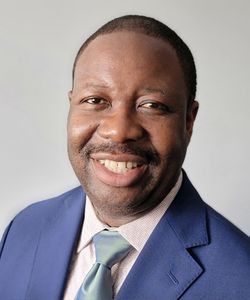 Dr. Olorunseun Ogunwobi obtained a medical degree from the University of Ibadan, Nigeria, a master's degree in biomedicine from the University of Hull, United Kingdom, a master's degree in clinical and translational science from the University of Florida, Gainesville, USA, and a PhD in molecular medicine from the University of East Anglia, Norwich, United Kingdom. He is the founding Director of the Hunter College Center for Cancer Health Disparities Research, tenured Associate Professor of Biological Sciences at Hunter College of The City University of New York, and a member of faculty in the Biology and Biochemistry PhD programs at The Graduate Center of The City University of New York. Dr. Ogunwobi is a translational cancer biologist whose work focuses on molecular mechanisms of progression of solid organ cancers with established racial disparities. His laboratory has established novel circulating tumor cell models that are being used progressively to elucidate molecular mechanisms underlying the role of circulating tumor cells in cancer metastasis. A major focus of Dr. Ogunwobi’s laboratory are studies elucidating the role of non-coding RNAs derived from the PVT1 gene locus in the development and progression of solid organ cancers. The Ogunwobi laboratory is also now working on epitranscriptomics, and utilization of genome engineering of the 3’untranslated region of the mRNA of known oncogenes as a novel therapeutic approach for lethal cancers. His work has been funded by the National Institutes of Health, New York State, Carnegie Corporation of New York, and the National Science Foundation, among others. Dr. Ogunwobi is a Contact Principal Investigator of the Synergistic Partnership for Enhancing Equity in Cancer Health (SPEECH) funded by U54 grants (CA221704 and CA221705), Contact Principal Investigator of 3U54CA221704-03S1 and Co-Investigator on R01 grant CA239603 from the National Cancer Institute. An author of 68 peer-reviewed journal articles and 2 book chapters, Dr. Ogunwobi has been issued 5 United States patents for biotechnology inventions with potential clinical applications in cancer, and he is a Co-Founder of NucleoBio, Inc, a City University of New York start-up biotechnology company. In 2022, Dr. Ogunwobi became a recipient of the Hunter College Presidential Award for Excellence in Scholarship or Creative Activity.
Dr. Olorunseun Ogunwobi obtained a medical degree from the University of Ibadan, Nigeria, a master's degree in biomedicine from the University of Hull, United Kingdom, a master's degree in clinical and translational science from the University of Florida, Gainesville, USA, and a PhD in molecular medicine from the University of East Anglia, Norwich, United Kingdom. He is the founding Director of the Hunter College Center for Cancer Health Disparities Research, tenured Associate Professor of Biological Sciences at Hunter College of The City University of New York, and a member of faculty in the Biology and Biochemistry PhD programs at The Graduate Center of The City University of New York. Dr. Ogunwobi is a translational cancer biologist whose work focuses on molecular mechanisms of progression of solid organ cancers with established racial disparities. His laboratory has established novel circulating tumor cell models that are being used progressively to elucidate molecular mechanisms underlying the role of circulating tumor cells in cancer metastasis. A major focus of Dr. Ogunwobi’s laboratory are studies elucidating the role of non-coding RNAs derived from the PVT1 gene locus in the development and progression of solid organ cancers. The Ogunwobi laboratory is also now working on epitranscriptomics, and utilization of genome engineering of the 3’untranslated region of the mRNA of known oncogenes as a novel therapeutic approach for lethal cancers. His work has been funded by the National Institutes of Health, New York State, Carnegie Corporation of New York, and the National Science Foundation, among others. Dr. Ogunwobi is a Contact Principal Investigator of the Synergistic Partnership for Enhancing Equity in Cancer Health (SPEECH) funded by U54 grants (CA221704 and CA221705), Contact Principal Investigator of 3U54CA221704-03S1 and Co-Investigator on R01 grant CA239603 from the National Cancer Institute. An author of 68 peer-reviewed journal articles and 2 book chapters, Dr. Ogunwobi has been issued 5 United States patents for biotechnology inventions with potential clinical applications in cancer, and he is a Co-Founder of NucleoBio, Inc, a City University of New York start-up biotechnology company. In 2022, Dr. Ogunwobi became a recipient of the Hunter College Presidential Award for Excellence in Scholarship or Creative Activity.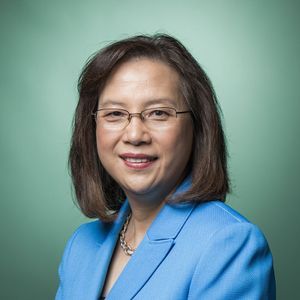 Dr. Ma is a nationally recognized behavioral health scientist, leader and pioneer in cancer and health disparities research among underserved and vulnerable racial/ethnic minority populations. In her role as Associate Dean for Health Disparities, Dr. Ma has provided critical and effective leadership in building robust research infrastructure and leading multidisciplinary teams across Temple schools/colleges and multiple institutions in conducting independent and collaborative, highly competitive and innovative cancer health disparities research and education/training a pipeline of diverse investigators in population, translational and clinical sciences. Built on two decades of her leadership, Dr. Ma and her research team established successful partnerships with over 400 community organizations to engage Asian-Pacific American, Black/African American, Hispanic/Latino populations in health disparity research and interventions. During her career, Dr. Ma has received continuous awards in research grants from National Institutes of Health (NIH), federal agencies and other funders. She has made seminal contributions in improving health equity and reducing health disparities. Over the past 22 years, Dr. Ma as Principal Investigator has directed 4 cycles of large-scale cancer health disparities research centers/networks funded by NCI/NIH including the recent U54 “TUFCCC/HC Regional Comprehensive Cancer Health Disparities Partnership.” Dr. Ma’s expertise spans a broad range of health disparities disciplines. Her community-based participatory research (CBPR) and patient-centered outcome research (PCOR) have focused on improving early detection, patient navigation, cancer prevention and control (Hepatitis-related liver cancer, cervical, breast, lung and colorectal cancers), smoking cessation, and access/quality of healthcare in underserved and racial/ethnic minorities. Dr. Ma has directed more than 100 intervention or observational longitudinal research studies, including large-scale cluster randomized intervention trials, implementation and dissemination studies at worksites, community health centers, primary care clinics, community-based organizations and churches (NIH funded R01s, U01s, R24s).
Dr. Ma is a nationally recognized behavioral health scientist, leader and pioneer in cancer and health disparities research among underserved and vulnerable racial/ethnic minority populations. In her role as Associate Dean for Health Disparities, Dr. Ma has provided critical and effective leadership in building robust research infrastructure and leading multidisciplinary teams across Temple schools/colleges and multiple institutions in conducting independent and collaborative, highly competitive and innovative cancer health disparities research and education/training a pipeline of diverse investigators in population, translational and clinical sciences. Built on two decades of her leadership, Dr. Ma and her research team established successful partnerships with over 400 community organizations to engage Asian-Pacific American, Black/African American, Hispanic/Latino populations in health disparity research and interventions. During her career, Dr. Ma has received continuous awards in research grants from National Institutes of Health (NIH), federal agencies and other funders. She has made seminal contributions in improving health equity and reducing health disparities. Over the past 22 years, Dr. Ma as Principal Investigator has directed 4 cycles of large-scale cancer health disparities research centers/networks funded by NCI/NIH including the recent U54 “TUFCCC/HC Regional Comprehensive Cancer Health Disparities Partnership.” Dr. Ma’s expertise spans a broad range of health disparities disciplines. Her community-based participatory research (CBPR) and patient-centered outcome research (PCOR) have focused on improving early detection, patient navigation, cancer prevention and control (Hepatitis-related liver cancer, cervical, breast, lung and colorectal cancers), smoking cessation, and access/quality of healthcare in underserved and racial/ethnic minorities. Dr. Ma has directed more than 100 intervention or observational longitudinal research studies, including large-scale cluster randomized intervention trials, implementation and dissemination studies at worksites, community health centers, primary care clinics, community-based organizations and churches (NIH funded R01s, U01s, R24s).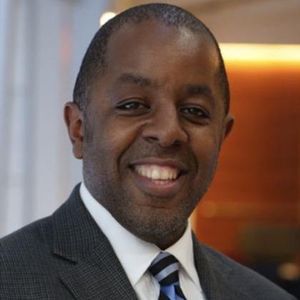 Dr. Joseph Osborne is the Chief of Molecular Imaging and Therapeutics, Professor of Radiology at Weill Cornell Medicine and Attending Radiologist at NewYork-Presbyterian/Weill Cornell Medicine. Dr. Osborne is the Head of the Rad Health Equity Laboratory. The lab endeavors to move past advocacy into the practical implementation of projects and partnerships to reduce radiologic health disparities. He was the also the principle investigator on an NIH Academic Industrial Partnership RO1 grant “A new technique to make 68Ga-labeled pharmaceuticals widely available for clinical use” and the Dean’s Health Disparity Research Award “Prostate Cancer Health Impact Program (pCHIP)”.
Dr. Joseph Osborne is the Chief of Molecular Imaging and Therapeutics, Professor of Radiology at Weill Cornell Medicine and Attending Radiologist at NewYork-Presbyterian/Weill Cornell Medicine. Dr. Osborne is the Head of the Rad Health Equity Laboratory. The lab endeavors to move past advocacy into the practical implementation of projects and partnerships to reduce radiologic health disparities. He was the also the principle investigator on an NIH Academic Industrial Partnership RO1 grant “A new technique to make 68Ga-labeled pharmaceuticals widely available for clinical use” and the Dean’s Health Disparity Research Award “Prostate Cancer Health Impact Program (pCHIP)”.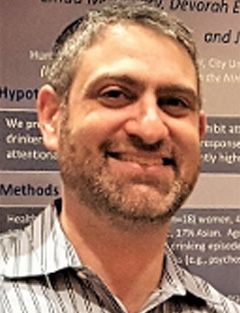 Dr. Erblich was a founding member of the Mount Sinai Tisch Cancer Institute and Institute for Translational Epidemiology at Mount Sinai, where he spent a decade focusing on cancer prevention and control related to genetic factors primarily impacting African American smokers. Using a multidisciplinary-translational approach, Dr. Erblich’s research in behavioral medicine has examined the effects of genetic polymorphisms on smoking behaviors and behavioral interventions to manage nicotine dependence. He has a long track record of research, training/mentorship and administrative leadership. In 2012, Dr. Erblich was recruited to HC to spearhead a new doctoral program in Health Psychology in Clinical Science (HPCS), which has matriculated a number of outstanding URM students. This doctoral program built on his long-standing work in training post-doctoral students and his mentorship of students, trainees, and junior investigators in cancer prevention and control.
Dr. Erblich was a founding member of the Mount Sinai Tisch Cancer Institute and Institute for Translational Epidemiology at Mount Sinai, where he spent a decade focusing on cancer prevention and control related to genetic factors primarily impacting African American smokers. Using a multidisciplinary-translational approach, Dr. Erblich’s research in behavioral medicine has examined the effects of genetic polymorphisms on smoking behaviors and behavioral interventions to manage nicotine dependence. He has a long track record of research, training/mentorship and administrative leadership. In 2012, Dr. Erblich was recruited to HC to spearhead a new doctoral program in Health Psychology in Clinical Science (HPCS), which has matriculated a number of outstanding URM students. This doctoral program built on his long-standing work in training post-doctoral students and his mentorship of students, trainees, and junior investigators in cancer prevention and control.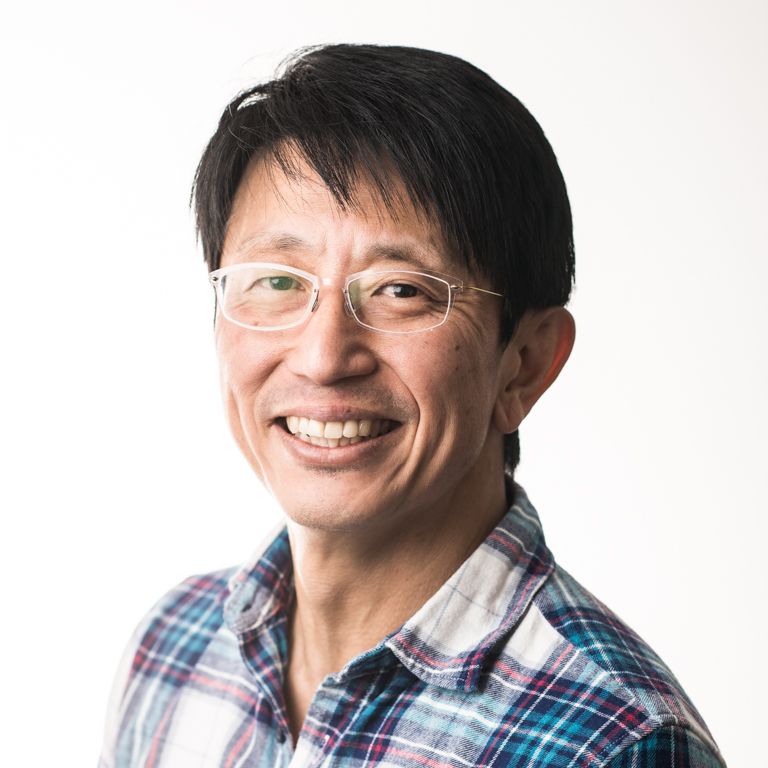 Professor Hiroshi Matsui teaches courses in biophysical chemistry and physical chemistry at Hunter College. After engineering a variety of peptide/protein assemblies (Chem. Soc. Rev., (2010) 39, 3499-3509), biomimetic autonomous motors (Nature Mater., (2012) 11, 1081-1085), and enzyme-mimicking peptides (J. Am. Chem. Soc., (2014) 136, 15893-15896), Dr. Hiroshi Matsui’s nanotechnology labs have developed various nanoparticles including inorganic nanocages (Nature Commun., (2014) 5, 3870). Currently his lab is focused on medical applications of nanotechnology, including nanoparticle-based drug delivery systems, medical imaging, and lab-on-a-chip cancer diagnostic devices.
Professor Hiroshi Matsui teaches courses in biophysical chemistry and physical chemistry at Hunter College. After engineering a variety of peptide/protein assemblies (Chem. Soc. Rev., (2010) 39, 3499-3509), biomimetic autonomous motors (Nature Mater., (2012) 11, 1081-1085), and enzyme-mimicking peptides (J. Am. Chem. Soc., (2014) 136, 15893-15896), Dr. Hiroshi Matsui’s nanotechnology labs have developed various nanoparticles including inorganic nanocages (Nature Commun., (2014) 5, 3870). Currently his lab is focused on medical applications of nanotechnology, including nanoparticle-based drug delivery systems, medical imaging, and lab-on-a-chip cancer diagnostic devices.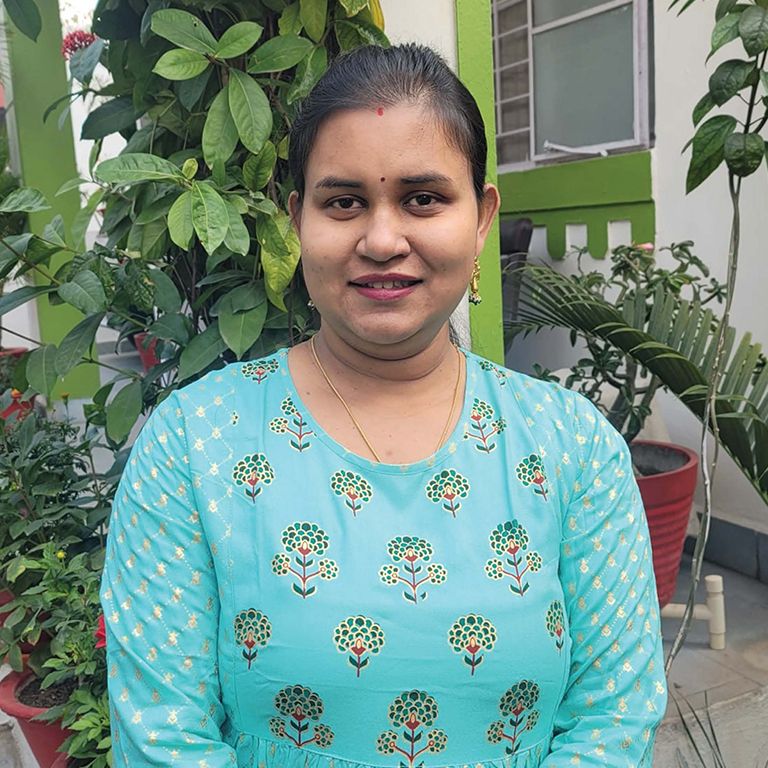 Dr. Jayashri Ghosh started her career in the field of epigenetics as a Post-Doctoral Fellow in Dr. Carmen Sapienza’s laboratory at the Fels Cancer Institute for Personalized Medicine, Temple University. She has been associated with Sapienza lab for more than 8 years now and has been recently promoted to the rank of Assistant Professor (Research). Dr. Ghosh initial works have focused on looking at epigenetic differences between two or more groups and interpreting the data into a clinically relevant aspect of Assisted Reproductive Technology (ART). One of the most interesting finds of her ART research has been the identification of epigenetic outliers or “Outlier Methylation Phenotype” (OMP). Such outliers have abnormal methylation patterns throughout the genome. The concept of epigenetic outliers is not restricted to ART and the team has expanded the study on outliers to the cancer field (secondary analyses of TCGA datasets). Furthermore, their recent work on racial disparity in colon cancer patients shows that methylation differences exists between patients of different races and African Americans patients are more likely to be OMPs than Caucasians ( TUFCCC/HC U54 Colon Pilot Study).
Dr. Jayashri Ghosh started her career in the field of epigenetics as a Post-Doctoral Fellow in Dr. Carmen Sapienza’s laboratory at the Fels Cancer Institute for Personalized Medicine, Temple University. She has been associated with Sapienza lab for more than 8 years now and has been recently promoted to the rank of Assistant Professor (Research). Dr. Ghosh initial works have focused on looking at epigenetic differences between two or more groups and interpreting the data into a clinically relevant aspect of Assisted Reproductive Technology (ART). One of the most interesting finds of her ART research has been the identification of epigenetic outliers or “Outlier Methylation Phenotype” (OMP). Such outliers have abnormal methylation patterns throughout the genome. The concept of epigenetic outliers is not restricted to ART and the team has expanded the study on outliers to the cancer field (secondary analyses of TCGA datasets). Furthermore, their recent work on racial disparity in colon cancer patients shows that methylation differences exists between patients of different races and African Americans patients are more likely to be OMPs than Caucasians ( TUFCCC/HC U54 Colon Pilot Study).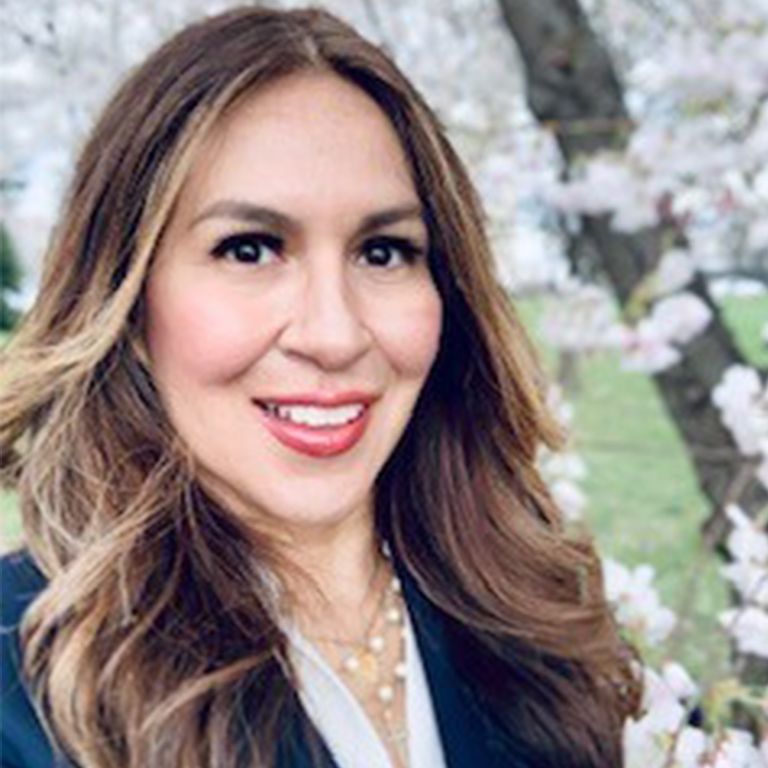 Sandra L. San Miguel is a Program Director in the Integrated Networks Branch of the National Cancer Institute’s Center to Reduce Cancer Health Disparities (CRCHD). In this role, she provides technical and scientific expertise to the Comprehensive Partnerships to Advance Cancer Health Equity (CAPACHE-U54) by managing various partnerships across the nation. The CPACHE funds equal partnerships between institutions serving underserved health disparity populations and underrepresented students (ISUPS) with NCI-designated cancer centers across the nation.
Sandra L. San Miguel is a Program Director in the Integrated Networks Branch of the National Cancer Institute’s Center to Reduce Cancer Health Disparities (CRCHD). In this role, she provides technical and scientific expertise to the Comprehensive Partnerships to Advance Cancer Health Equity (CAPACHE-U54) by managing various partnerships across the nation. The CPACHE funds equal partnerships between institutions serving underserved health disparity populations and underrepresented students (ISUPS) with NCI-designated cancer centers across the nation.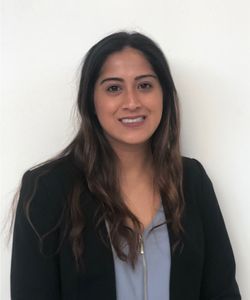 Aisha Bhimla is a postdoctoral fellow at the Center for Asian Health at Temple University Lewis Katz School of Medicine. In this position, she provides support to federally funded projects that address health disparities among Asian American, Black/African American, and Latinx communities. Her involvement in health disparities research has included a broad range of community-based interventions and assessments related to chronic disease and cancer, physical activity, mental health, cognitive functioning, and teen pregnancy/STI prevention. She is specifically passionate about using epidemiological methods to understand how social determinants of health, such as the neighborhood environment affect health behaviors and risk factors associated with colorectal and liver cancers among racial and ethnic minority populations. She holds a Ph.D. in Kinesiology from Temple University and an MPH in Epidemiology and Global Health from the University of South Florida.
Aisha Bhimla is a postdoctoral fellow at the Center for Asian Health at Temple University Lewis Katz School of Medicine. In this position, she provides support to federally funded projects that address health disparities among Asian American, Black/African American, and Latinx communities. Her involvement in health disparities research has included a broad range of community-based interventions and assessments related to chronic disease and cancer, physical activity, mental health, cognitive functioning, and teen pregnancy/STI prevention. She is specifically passionate about using epidemiological methods to understand how social determinants of health, such as the neighborhood environment affect health behaviors and risk factors associated with colorectal and liver cancers among racial and ethnic minority populations. She holds a Ph.D. in Kinesiology from Temple University and an MPH in Epidemiology and Global Health from the University of South Florida.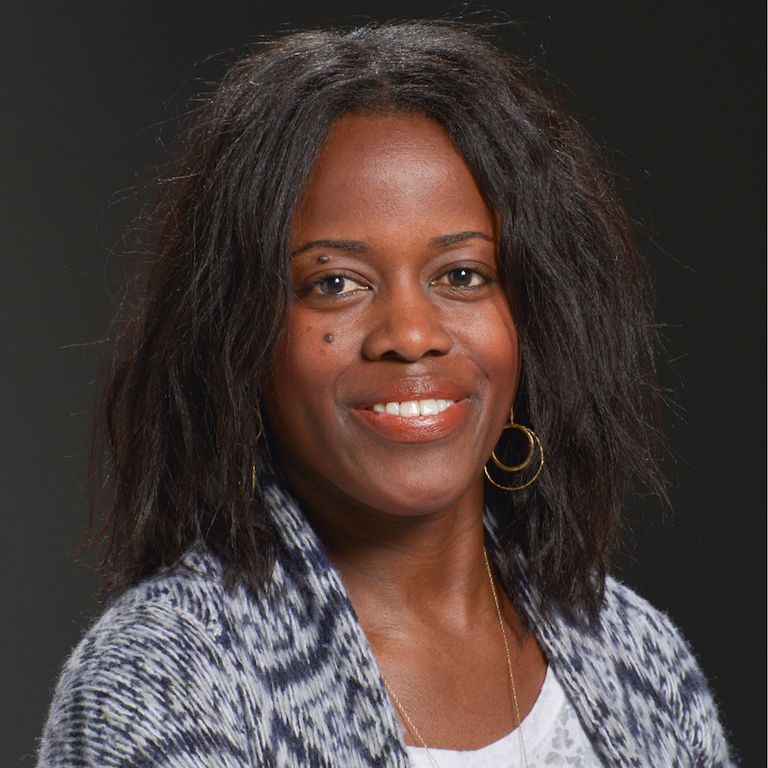 Dr. Mandë Holford is a tenured Associate Professor in Chemistry at Hunter College and CUNY-Graduate Center, with scientific appointments at The American Museum of Natural History and Weill Cornell Medicine. Her research combines biological and chemical techniques to examine venoms and venomous animals. She is particularly interested in using venom peptides to study rapidly evolving genes and to examine the cellular physiology of malfunctioning signals in pain and cancer. Dr. Holford’s lab applied an evolutionary venomics approach, integrating phylogenetic, transcriptomics, and proteomics, to investigate the evolution of venom in terebrid snails and to characterize their venom peptides. She was the first to reconstruct the molecular phylogeny of the group and demonstrate the analgesic and antitumor activity of terebrid peptides. The Holford has recently focused on developing invertebrate venom gland model systems that can be genetically manipulated to study the molecular innovation of venom. She is active in science education, advancing the public understanding of science, and science diplomacy. She co-founded Killer Snails, LLC, an award-winning EdTech company that uses tabletop, digital, and XR games about nature as a conduit to advance scientific learning in K-12 classrooms. Her honors include being named: a Sustainability Pioneer and Champion Scientist by the World Economic Forum, Breakthrough Women in Science by the Howard Hughes Medical Institute and NPR’s Science Friday, a Wings WorldQuest Women of Discovery Fellow, a Camille Dreyfus Teacher-Scholar, an NSF CAREER awardee, a AAAS Science & Technology Policy Fellow, and Fellow of the California Academy of Sciences. She received her PhD from The Rockefeller University.
Dr. Mandë Holford is a tenured Associate Professor in Chemistry at Hunter College and CUNY-Graduate Center, with scientific appointments at The American Museum of Natural History and Weill Cornell Medicine. Her research combines biological and chemical techniques to examine venoms and venomous animals. She is particularly interested in using venom peptides to study rapidly evolving genes and to examine the cellular physiology of malfunctioning signals in pain and cancer. Dr. Holford’s lab applied an evolutionary venomics approach, integrating phylogenetic, transcriptomics, and proteomics, to investigate the evolution of venom in terebrid snails and to characterize their venom peptides. She was the first to reconstruct the molecular phylogeny of the group and demonstrate the analgesic and antitumor activity of terebrid peptides. The Holford has recently focused on developing invertebrate venom gland model systems that can be genetically manipulated to study the molecular innovation of venom. She is active in science education, advancing the public understanding of science, and science diplomacy. She co-founded Killer Snails, LLC, an award-winning EdTech company that uses tabletop, digital, and XR games about nature as a conduit to advance scientific learning in K-12 classrooms. Her honors include being named: a Sustainability Pioneer and Champion Scientist by the World Economic Forum, Breakthrough Women in Science by the Howard Hughes Medical Institute and NPR’s Science Friday, a Wings WorldQuest Women of Discovery Fellow, a Camille Dreyfus Teacher-Scholar, an NSF CAREER awardee, a AAAS Science & Technology Policy Fellow, and Fellow of the California Academy of Sciences. She received her PhD from The Rockefeller University.